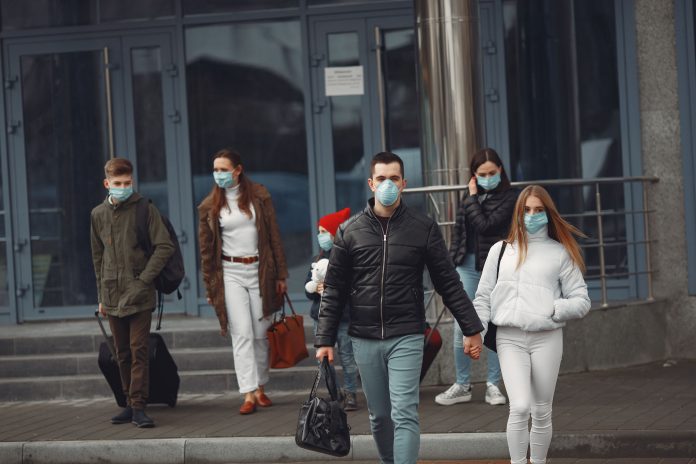Three months ago, the novel coronavirus first appeared in Wuhan, China. Now, it is considered a global pandemic. As of March 18th, the virus has infected over 169,000 individuals, resulting in 8,732 deaths—and counting.
The United States as of this writing has approximately 7,769 confirmed cases of the coronavirus and at least 125 related deaths. But those numbers are already history. The death toll is expected to increase exponentially.
Dr. Brian Monahan, attending physician to the United States Congress and Supreme Court, estimates between 70 and 150 million Americans will become infected.
With thousands of air flights canceled and widespread shortages of many necessities, the country is in full panic mode. Unfortunately, too often governments’ first actions in any crisis is to increase the control it has over the citizens.
To contain the spread of the coronavirus, Italy’s government has placed nearly 16 million of its own citizens on lockdown, forbidding any travel without state permission. Spain will soon implement similar policies. NBC News reports Chinese government officials are forcefully removing citizens from their homes to be quarantined.
Draconian efforts to curb the virus are now proposed everyday here in the United States. Former FDA Commissioner Scott Gottlieb has suggested governments should forcibly shut down businesses for “national interest.” Many jurisdictions have already mandated “shelter in place” restrictions, including six counties of the San Francisco Bay Area. More jurisdictions have either implemented or contemplated such measures. New York Governor Andrew Cuomo has recommended President Trump use the military to expand the nation’s hospital capacity. President Trump recently issued a 30-day travel ban to Europe for all Americans, and acknowledges that a local travel ban is “possible.”
It’s important to note that such restrictions aren’t the only way the people have dealt with pandemics.
A century before Covid-19, the Spanish Flu infected nearly one-third of the world’s population and killed more than 50 million people. Even though “public health infrastructure was only just beginning,” private individuals and local elected officials in Seattle, Washington, transformed theaters into hospital space and enacted temporary rules to improve public sanitation. Many individuals also voluntarily quarantined themselves. Their efforts were remarkably successful. By the end of the deadliest pandemic in history, Seattle experienced only about 1,500 deaths in a city of more than 600,000 people.
Local efforts to thwart Covid-19, the disease caused by the coronavirus, have also proven successful in South Korea. Previously considered one of countries most affected by the pandemic, South Korea is now one of the few places in the world where new cases of the coronavirus are declining. Perhaps most remarkably, South Korea was able to slow the progress of the virus without citywide lockdowns. Their success is largely due to widely available testing and mobile apps warning users of infected areas.
Preventing further devastation from Covid-19 requires swift and effective action. But as economist Thomas Sowell reminds us, “The most basic question is not what is best, but who shall decide what is best.” The government’s tendency to take drastic action and achieve lackluster results suggest that local efforts to mitigate crises might be more successful. Unfortunately, it seems the only thing expanding faster than the coronavirus its government power trying to prevent it.
